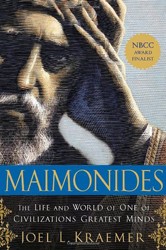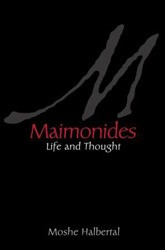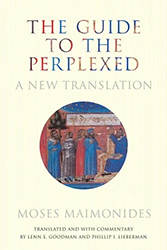A good friend of mine, a prominent local Orthodox rabbi, remarked to me recently that he frequently studies Maimonides’ Mishnah Torah, along with Mishnah, Gemara, and Torah. Such is the influence that Maimonides, or “Rambam,” holds on the everyday life of 21st century Jews, 800 years after his death.
The reasons for this, as well as a flavor of Jewish life in the 12th century, is nicely documented in Sherwin Nuland’s new, tightly written biography, Maimonides. Nuland takes the reader on a journey through the major religious writings of the Rambam, while spotlighting his career as a physician. The reader is able to understand how Maimonides was able to reconcile faith with science, perhaps his greatest philosophic gift to centuries of Jews and non-Jews. Also described are the remarkable personal traits of Maimonides, including his wisdom in interpreting halakha, his vast intelligence, extraordinary memory, and compassion for the sick.
As noted above, the volume is concise, achieving the desired goal of whetting the reader’s appetite for more information. As a physician, I felt the book was a treat to read; such is the appeal of both Maimonides and Maimonides that I think my learned rabbinical friend would enjoy it as well.

Nonfiction
Maimonides
- Review
By
– November 10, 2011
Paul M. Arnold, MD, is professor of neurosurgery and director of the Spinal Cord Injury Center at the University of Kansas.
Discussion Questions

Jewish literature inspires, enriches, and educates the community.
Help support the Jewish Book Council.


